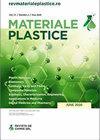关于3D打印零件化学处理的一些见解
IF 0.6
4区 材料科学
Q4 MATERIALS SCIENCE, MULTIDISCIPLINARY
引用次数: 2
摘要
在越来越广泛的领域中,使用FDM(熔融沉积建模)工艺生产塑料零件的大幅增加,导致寻找提高印刷零件质量的方法。以ABS零件(丙烯腈-丁二烯-苯乙烯)为例,改善表面质量最常用和最常用的方法之一是丙酮蒸汽处理工艺,但该方法的应用也给零件带来或多或少的负面影响。当应用这种方法时,主要的副作用是低断裂强度和锐利边缘上零件细节的损失。本文对丙酮蒸汽处理零件的表面质量与细节水平之间的关系作了一系列的研究。为了分析处理对零件细节的影响,采用逆向工程方法,使用多关节臂FARO Edge 7.5对零件进行扫描和重构。该研究是在20%填充的部件上进行的,网格类型。本文章由计算机程序翻译,如有差异,请以英文原文为准。
Some Insights on Chemical Treatment of 3D Printed Parts
The substantial increase in the use of the FDM (Fused Deposition Modeling) process for the production of plastic parts in ever wider fields has led to the search for methods to improve the quality of the printed parts. In the case of ABS parts (Acrylonitrile Butadiene Styrene), one of the most common and used methods to improve surface quality is the process of acetone steam treatment, but the application of this method also brings more or less negative effects on the part. The main side effects when applying this method is the low breaking strength and loss of part details on the sharp edges. This paper presents a set of contributions on the relationship between surface quality and the level of detail of parts subjected to acetone steam treatment. In order to analyze the influence of the treatment on the details of the parts, a reverse engineering method was used in which a polyarticular arm FARO Edge 7.5 was used to scan the parts and reconstruct them. The study was performed on parts with 20% infill, grid tipe.
求助全文
通过发布文献求助,成功后即可免费获取论文全文。
去求助
来源期刊

Materiale Plastice
MATERIALS SCIENCE, MULTIDISCIPLINARY-
CiteScore
1.40
自引率
25.00%
发文量
99
审稿时长
6-12 weeks
期刊介绍:
Materiale Plastice, abbreviated as Mater. Plast., publishes original scientific papers or guest reviews on topics of great interest.
The Journal does not publish memos, technical reports or non-original papers (that are a compiling of literature data) or papers that have been already published in other national or foreign Journal.
 求助内容:
求助内容: 应助结果提醒方式:
应助结果提醒方式:


